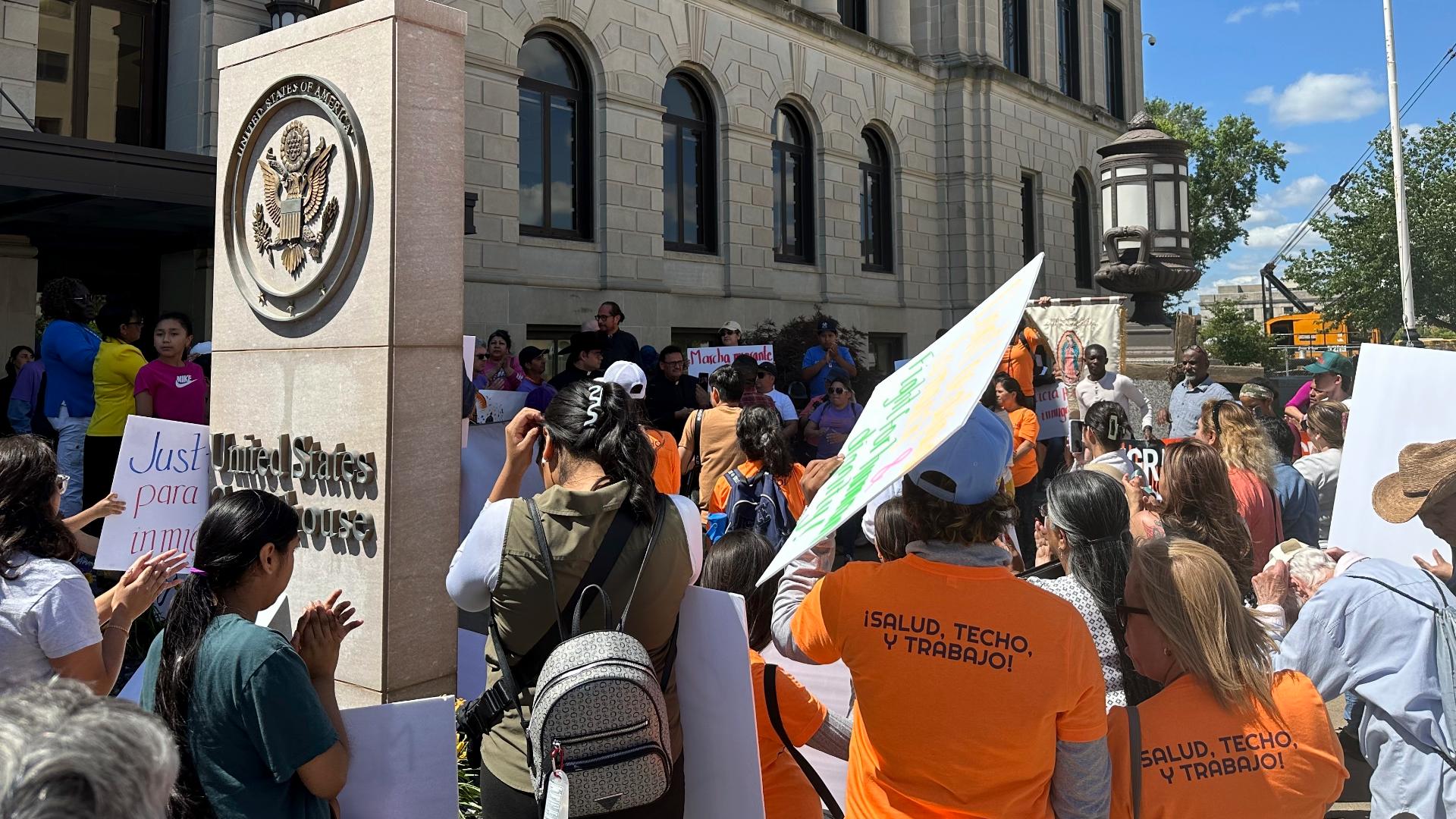DES MOINES, Iowa — Civil rights groups and the U.S. Department of Justice argued in court Monday that Iowa's new law making it a crime to be in the state if previously denied admission into the United States is unconstitutional.
In the courtroom, the DOJ said the law will have a "dramatic impact". However, the state says it is already in an immigration crisis, and that crisis is undisputable.
The plaintiffs say their legal claim for this case is that states are required to follow federal law. Both the DOJ and Iowa Migrant Movement for Justice argue the Iowa law is preempted by federal law.
Preemption is a legal doctrine allowing the federal government to limit or supersede the state government's power in regulating a certain issue.
"If these laws aren't challenged, we're risking a situation where we have 50 states with 50 immigration policies, an unworkable system that will harm our vibrant, immigrant communities across the country," said Emma Winger, deputy legal director for the American Immigration Council.
Those filing the lawsuits also argue there is no place for legislation because the federal government already has a specific interest.
"I can say that this law is remarkable in the fact that I, as an immigration advocate, [am] standing alongside the Department of Justice," Winger said. "We're often adversaries, right? It shows how remarkable this law is."
The State of Iowa argued in court on Monday that the law adopts the federal standard, and it has a sovereign right to enforce these laws in the state.
The state claims an overlap in the law does not mean it is preemptive, saying, "Congress made a deliberate choice and Iowa has chosen to adopt that choice."
The American Civil Liberties Union (ACLU) is representing Iowa Migrant Movement for Justice and two individuals, claiming Senate File 2340 signed into law in April "is unlawful in its entirety".
After oral arguments, Executive Director of Iowa Migrant Movement for Justice Erica Johnson said of the law, "It's unworkable. It's creating fear and driving misinformation in immigrant communities around our state."
The law is set to take effect July 1, but the federal petition asks for it not to be enforced. The law could mean criminal charges for people who have outstanding deportation orders or who have previously been removed from or denied admission to the U.S. Once in custody, migrants could either agree to a judge’s order to leave the U.S. or be prosecuted.
Iowa Attorney General Brenna Bird, Polk County Attorney Kimberly Graham and Clayton County Attorney Zach Herrmann are listed as defendants.
The DOJ has filed a similar lawsuit, with Iowa Gov. Kim Reynolds among the defendants, stating the federal government has "exclusive authority under federal law to regulate the entry and removal of noncitizens."
Some law enforcement agencies, such as the Marshalltown Police Department, have said the law puts an unrealistic expectation on local departments.
"We don't have access to the databases we would need access to do that function ... where if somebody is detained for an immigration violation, where will they go? How will we deport them to their country of origin? Those questions are unanswered, and who's going to pay for it all, that's unanswered as well?" Chief Michael Tupper told Local 5 in April.
"Today, we made the case in court defending Iowa’s law that prohibits illegal reentry and keeps our communities safe. If Biden invested half as much energy into securing our borders as he does suing states like Iowa, we would all be better off," Bird said in a statement Monday.
The judge overseeing these cases said he plans to have a ruling on the injunction before July 1.
The Associated Press contributed to this report

